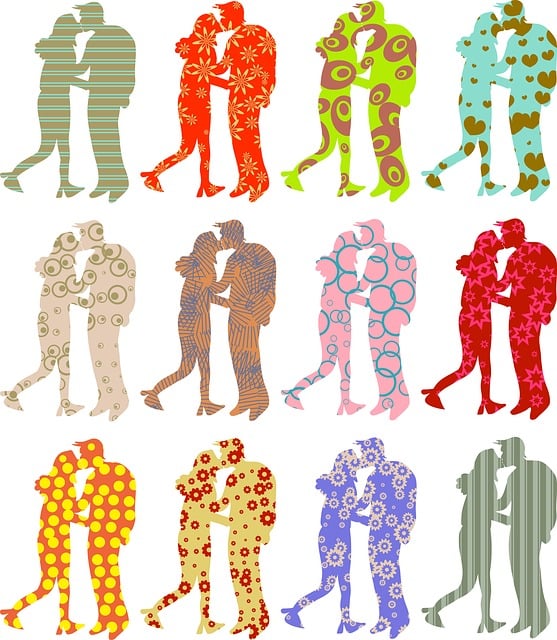Reverse image search tools have revolutionized how we locate individuals online, especially on social media platforms. By analyzing and matching visual data from profile pictures, these technologies extract personal information like names, locations, and online activities. Users can easily find people known only through digital avatars, making them valuable for investigators, privacy specialists, and those seeking to reconnect with loved ones. However, ethical concerns arise due to the potential for misuse, embarrassment, or harassment. Responsible use is crucial when employing these tools to https://freepeoplefinder.us and find someone.
Uncover the power of reverse image search tools to find people online. In today’s digital age, these innovative techniques allow you to search social media profiles by simply uploading or pasting an image. Discover how to conduct a reverse image search with ease and explore its numerous benefits, from identifying unknown individuals to verifying online identities. However, remember to navigate this powerful tool responsibly, considering ethical boundaries and privacy concerns to ensure a safe and respectful experience.
- Understanding Reverse Image Search Tools
- How to Conduct a Reverse Image Search on Social Media Profiles
- Benefits of Using This Technique to Find People Online
- Ethical Considerations and Privacy Concerns
Understanding Reverse Image Search Tools

Reverse image search tools have revolutionized how we find people and track down individuals across various online platforms, especially when searching social media. These innovative technologies work by lifting pixels from a profile picture or any other digital image to identify its source. They scan through vast databases of images, matching the provided visual data to find similar or identical pictures. This process allows users to uncover a wealth of information about an individual, including their real name, location, and even their online activity.
By utilizing reverse image search on social media profiles, users can efficiently locate someone they may only know through their digital avatar. It’s a powerful way to find people or verify identities, making it particularly useful for investigators, privacy experts, and individuals seeking to connect with long-lost friends or family members. With just a single click, these tools enable anyone to search social media and uncover hidden connections, thus transforming the way we interact and discover information in the digital age.
How to Conduct a Reverse Image Search on Social Media Profiles

To conduct a reverse image search on social media profiles, start by locating the person’s profile picture. Right-click on the image and select “Copy Image Address” or use tools that automatically extract the URL. Next, visit a reverse image search engine like Google Images, TinEye, or Bing Visual Search. Paste the image URL into the search bar and click enter. The tool will then scan its database to find similar images and potential matches.
This process can help you find people on social media by revealing their real-world identity, especially if they have used the same profile picture across multiple platforms under different names. It’s a powerful way to connect with someone online or verify their authenticity. Additionally, it can be useful for safety purposes, allowing you to confirm or deny claims made about an individual based on visual evidence.
Benefits of Using This Technique to Find People Online

Using a reverse image search is a powerful tool for anyone trying to find people online or locate an individual through their social media profiles. This technique allows users to upload or input an image, often a profile picture, and instantly gain access to a wealth of information. By employing this method, you can uncover hidden connections, verify identities, and even trace individuals across various platforms without the need for personal details.
The advantages are numerous: it’s an efficient way to search social media, as it bypasses the traditional text-based searches and provides visual results, making identification much faster. This is particularly useful when trying to find someone on social media whose name or other identifying data might be unknown. It also adds a layer of privacy protection for individuals, as it requires an image rather than easily discoverable personal information to return search results.
Ethical Considerations and Privacy Concerns

Using reverse image search tools to track down individuals through their profile pictures raises several ethical considerations and privacy concerns. While these technologies can be powerful tools for finding people on social media or identifying someone you know, they also pose significant risks. Once an image is uploaded online, it becomes part of a vast digital landscape, and anyone with the right tools can access and use it without the original subject’s consent. This raises issues around privacy, as personal images can be exploited or misused, leading to potential embarrassment, harassment, or even threats.
Moreover, reverse image search technology can easily lead to false positives or negatives, impacting individuals who bear a resemblance to someone else. It may inadvertently reveal personal information about someone who did not intend for it to be public, such as their current location or place of work. In the wrong hands, this data could be used maliciously, leading to severe privacy invasions. Therefore, it’s crucial to approach these tools responsibly and with caution, considering both the potential benefits and the significant risks they pose in terms of finding people on social media or tracking down individuals through their online presence.






